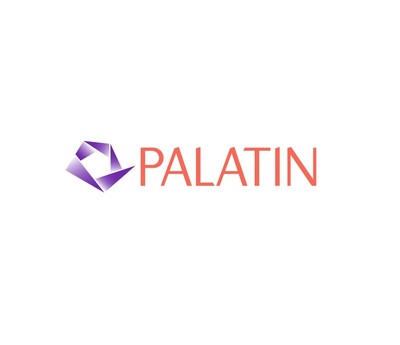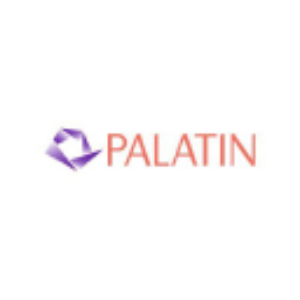Frontiers in Immunology Publishes Pre-Clinical Study of Palatin's Oral Formulation of PL8177 Demonstrating Therapeutic Effects in Inflammatory Bowel Disease
Palatin Technologies, Inc. (NYSE American: PTN) announced a study published in Frontiers in Immunology, highlighting the therapeutic effects of its oral formulation, PL8177, in preclinical models of inflammatory bowel disease. The study reports that PL8177 remains gut-restricted, showing promising results such as reduced immune cell infiltration and improved colon structure. Pharmacokinetic studies indicated that PL8177 is effective in the colon without systemic absorption. The company is currently enrolling patients in a Phase 2 clinical trial for ulcerative colitis. Initial results from the trial are expected in mid-2023, with final data anticipated later in the year.
- Demonstrated therapeutic effects of oral PL8177 in inflammatory bowel disease in preclinical studies.
- Safety profile shows no tolerability issues in animal studies.
- Ongoing Phase 2 clinical trial for ulcerative colitis currently enrolling patients.
- None.
Insights
Analyzing...
- Oral PL8177 is gut restricted in rats, dogs and humans
- Bioinformatics data shows positive effects on enterocytes and infiltrating immune cells
CRANBURY, N.J., March 2, 2023 /PRNewswire/ -- Palatin Technologies, Inc. (NYSE American: PTN), a biopharmaceutical company developing first-in-class medicines based on molecules that modulate the activity of the melanocortin receptor system, today announced Frontiers in Immunology published a manuscript, "A novel oral formulation of the melanocortin-1 receptor agonist PL8177 resolves inflammation in preclinical studies of inflammatory bowel disease and is gut restricted in rats, dogs and humans," summarizing data demonstrating oral PL8177 provides therapeutic effects in inflammatory bowel disease and pharmacokinetic data from a clinical study showing PL8177 remains restricted to the gut.
Palatin research scientists conducted multiple studies in rat models of inflammatory bowel disease to assess the immunopharmacology of PL8177. Key findings included maintenance of intact colon structure and barrier, reduced immune cell infiltration, and increased enterocytes with PL8177 treatment. Genomic data show that oral PL8177 treatment causes relative cell populations and key gene expression levels to move closer to healthy controls. Compared with vehicle, PL8177 treated colon samples show positive effects on immune marker genes and diverse, well known immune-related pathways.
Data from pharmacokinetic studies demonstrated that in rats and dogs, orally administered PL8177 was detected at higher amounts in the colon vs upper GI tract. [14C]-PL8177 was detected in the feces but not in the plasma and urine in humans suggesting that [14C]-PL8177 was released from the polymer formulation within the GI tract, where it is expected to exert its therapeutic effect.
"These promising results demonstrate the potential value of targeting the melanocortin-1 receptor ("MC1r") for treating inflammatory bowel disease," said Carl Spana, Ph.D., President and CEO of Palatin. "This data adds to the robust body of preclinical and clinical safety, tolerability, efficacy, and mechanism of action data for PL8177 and provides support for our oral PL8177 Phase 2 clinical trial for patients with ulcerative colitis ("UC"), which is currently enrolling patients."
Dr. Spana further commented, "In preparation for human dosing in the clinic, oral PL8177 demonstrated an excellent safety profile with zero observed safety or tolerability issues in both rats and dogs. Because PL8177 is a peptide, restricted to the gut, and is not systemically absorbed, it is anticipated the ongoing Phase 2 clinical trial for patients with UC will demonstrate the same excellent safety and tolerability profile."
The authors on the paper were John Dodd, Carl Spana, Robert Jordan, Marie Makhlina, Keith Barnett, Alison Orb, Priyanka Dhingra, and Paul Kayne of Palatin, and Ad Roffel from Consulting and Advisory Services, Clinical Pharmacology, ICON plc, Groningen, Netherlands. The citation may be found at the following link: https://www.frontiersin.org/articles/10.3389/fimmu.2023.1083333.
Drugs targeting the melanocortin system have emerged as promising therapeutics for several conditions, including inflammatory diseases, obesity and sexual dysfunction, with several already FDA approved. As illustrated in the publication, melanocortins are peptides that have anti-inflammatory and pro-resolving effects. Many of these effects are mediated by the melanocortin-1 receptor as reported in several experimental settings. As such, MC1r can be a viable target for the development of new therapies that mimic endogenous pro-resolving mediators. Palatin has multiple MC1r agonist candidates in pre-clinical and clinical development.
Palatin is conducting a Phase 2 multi-center, randomized, double-blind, placebo-controlled, adaptive design, clinical study of PL8177, with once daily (QD) oral dosing in adult patients with active UC. The study is designed to enroll up to 28 adult patients with active UC from approximately 22 sites. All subjects who meet the eligibility criteria will be randomized to receive either placebo or oral PL8177.
The PL8177-205 interim assessment is expected to occur in the first half of calendar year 2023, with final topline data anticipated in the second half of calendar year 2023. Additional trial information, including inclusion and exclusion criteria, can be found at https://clinicaltrials.gov/ via the identifier NCT05466890.
About PL8177
PL8177 is a synthetic cyclic heptapeptide with demonstrated efficacy in multiple animal inflammatory bowel disease models. PL8177 is a potent, selective agonist at the human melanocortin-1 receptor, with sub-nanomolar affinity binding and EC50 functional values. Palatin data demonstrates that the oral formulation of PL8177 was protected from degradation in the stomach and small intestine and delivered to the large intestine and colon over an extended period. In addition, orally administered PL8177 had a significant effect on resolving inflammation in a rat bowel inflammation model.
PL8177 in oral formulations has demonstrated repeated, robust efficacy in ulcerative colitis disease models. MC1r is found on epithelial cells and resident macrophages of the colon which are accessible from the lumen of the colon. Orally administered PL8177 is not systemically absorbed. PL8177 has the potential for excellent efficacy without safety concerns.
About Ulcerative Colitis
Ulcerative colitis is a chronic disease of the large intestine (colon), with inflammation and ulcerations that can cause significant abdominal pain, persistent diarrhea, loss of appetite and other symptoms. An estimated 1 million individuals in the United States are affected by ulcerative colitis, with over 350,000 diagnosed with moderate-to-severe disease. Existing treatments are not effective in a substantial portion of patients with moderate-to-severe ulcerative colitis, with certain severe cases resulting in surgical removal of the colon.
About Melanocortin Receptor Agonists and Inflammation
The melanocortin receptor ("MCr") system has effects on inflammation, immune system responses, metabolism, food intake, and sexual function. There are five melanocortin receptors, MC1r through MC5r. Modulation of these receptors, through use of receptor-specific agonists, which activate receptor function, or receptor-specific antagonists, which block receptor function, can have medically significant pharmacological effects. Many tissues and immune cells located throughout the body, including the gut, kidney and eye, express melanocortin receptors, empowering our opportunity to directly activate natural pathways to resolve disease inflammation.
About Palatin
Palatin is a biopharmaceutical company developing first-in-class medicines based on molecules that modulate the activity of the melanocortin receptor systems, with targeted, receptor-specific product candidates for the treatment of diseases with significant unmet medical need and commercial potential. Palatin's strategy is to develop products and then form marketing collaborations with industry leaders to maximize their commercial potential. For additional information regarding Palatin, please visit Palatin's website at www.Palatin.com and follow Palatin on Twitter at @PalatinTech.
Forward-looking Statements
Statements in this press release that are not historical facts, including statements about future expectations of Palatin, such as statements about PL8177 clinical trials and results, are "forward-looking statements" within the meaning of Section 27A of the Securities Act of 1933, Section 21E of the Securities Exchange Act of 1934 and as that term is defined in the Private Securities Litigation Reform Act of 1995. Palatin intends that such forward-looking statements be subject to the safe harbors created thereby. Such forward-looking statements involve known and unknown risks, uncertainties and other factors that could cause Palatin's actual results to be materially different from its historical results or from any results expressed or implied by such forward-looking statements. Palatin's actual results may differ materially from those discussed in the forward-looking statements for reasons including, but not limited to, results of clinical trials, regulatory actions by the FDA and other regulatory and the need for regulatory approvals, Palatin's ability to fund development of its technology and establish and successfully complete clinical trials, the length of time and cost required to complete clinical trials and submit applications for regulatory approvals, products developed by competing pharmaceutical, biopharmaceutical and biotechnology companies, commercial acceptance of Palatin's products, and other factors discussed in Palatin's periodic filings with the Securities and Exchange Commission. Palatin is not responsible for updating for events that occur after the date of this press release.
Palatin Technologies® is a registered trademarks of Palatin Technologies, Inc.
![]() View original content to download multimedia:https://www.prnewswire.com/news-releases/frontiers-in-immunology-publishes-pre-clinical-study-of-palatins-oral-formulation-of-pl8177-demonstrating-therapeutic-effects-in-inflammatory-bowel-disease-301760623.html
View original content to download multimedia:https://www.prnewswire.com/news-releases/frontiers-in-immunology-publishes-pre-clinical-study-of-palatins-oral-formulation-of-pl8177-demonstrating-therapeutic-effects-in-inflammatory-bowel-disease-301760623.html
SOURCE Palatin Technologies, Inc.








